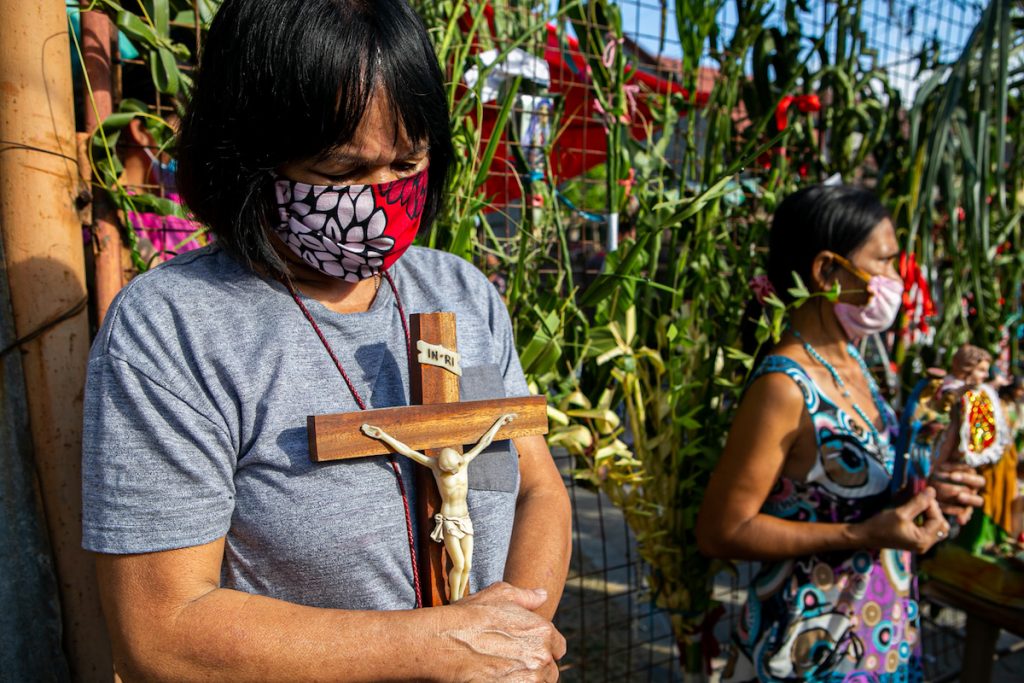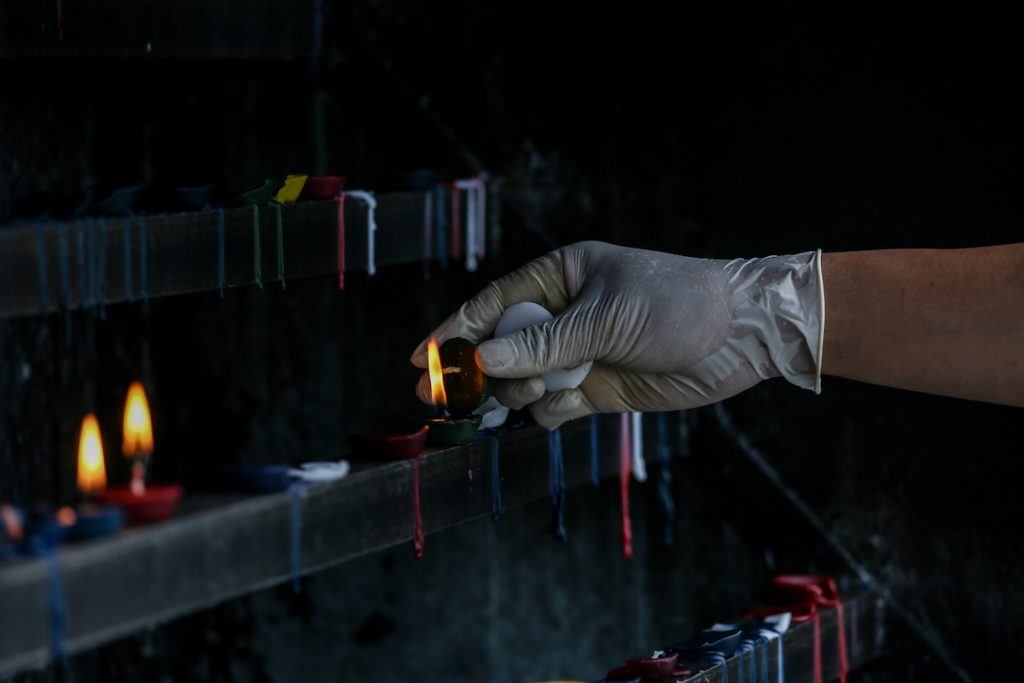During Lent this year, Rodney De Leon, a 24-year-old Catholic, made a lot of “sacrifices.”
He was not able to go to confession, was not able to attend Mass, and most of all, he was not receiving Holy Communion.
“Given the situation, I consider myself hungry for the sacraments,” he said, adding that it is “penance in itself” for his transgressions.
The young man said the absence of the usual Lenten rituals, however, added more “beauty and value” to his faith.
“I also realized that every day is a moment of spiritual warfare,” he said. “We must constantly arm ourselves with prayer, fasting, and penance.”
John Lenon, who teaches Theology at the School of Humanities in the Jesuit-run Ateneo de Manila University, said Filipino Catholics put so much value in traditions.
“Not being able to perform [traditional religious practices] and having to make do with alternatives will take a huge impact on our people’s religiosity,” he said.
He noted, however, that the lockdown due to the coronavirus pandemic has offered opportunities for the creative practice of one’s faith.
But it also poses a challenge, said the professor. He said that after the quarantine period, the faithful might consider other ways of practicing one’s faith.
“Some would think that because it’s possible to digitally attend the Mass, they might as well not go to church,” he said, adding that “it misses the whole point of religious worship together.”
He added that isolation from the community makes the online Mass “less of a celebration and more of a chore.”
“Celebrating Mass online has robbed it of most of its color because it’s so hard to pray with people on a monitor,” he said. “The community of worshippers is what makes Mass what it is.”
Even during the Holy Week, the country’s Catholic bishops have recommended “physical distancing” in the observance of the Easter Triduum.
The three-day observance begins with the liturgy on the evening of Holy Thursday and reaches its high point in the Easter Vigil, and closes with evening prayer on Easter Sunday.
Also, instead of the traditional Filipino “Visita Iglesia,” or church visit, parish priests will be going around villages with the Blessed Sacrament.


Father Jerome Secillano, executive secretary of the public affairs office of the bishops’ conference, said “selfless acts” during the pandemic should unite Christians in the suffering of Christ.
“Doing corporal works of mercy, like feeding the hungry or giving charity to the poor, serving the sick … are the best approximation of what Jesus did in Calvary,” he said.
Addressing penitents who usually subject themselves to self-flagellation, even crucifixion, during the Holy Week, the priest said “the best sacrifice is to help those in need.”
“If you want to be forgiven (for your sins) then be sorry for your sins. Make a good confession and reform your life,” said the priest.
Archbishop Socrates Villegas of Lingayen-Dagupan said the Holy Week is about love not rituals.
“Love makes us holy. Love not rituals is the spirit of Holy Week,” he said. “Scourges and crownings with thorns do not make us holy. Carrying the heavy cross and being nailed to it does not sanctify,” said the prelate.
He said rituals mean nothing unless tthey were offered with love.
“It is when pain is penetrated by love; when we allow love to prevail over our distress; when death is embraced with love for others — that is what truly sanctifies,” he said.
“Pain does not make us holy; love does. Courage is amazing but only by love are sins forgiven. Only love can redeem,” said the archbishop.
Bishop Broderick Pabillo of the Archdiocese of Manila said while the practice of the Christian faith in the Philippines has been wrapped in many traditional practices, these are but external manifestations of the faith.
“This is a great help for many to experience the faith in concrete ways, but there is also the danger that we identify our religion only with these practices,” he said in a pastoral instruction to the clergy.
“Indeed, if we are not careful, the external practices can hide the deep meaning of our Christian faith,” he said.
With the pandemic, Bishop Pabillo said the faithful are challenged to live the Holy Week without the traditional external trappings.
“There is still the Holy Week but we celebrate it differently, and hopefully, more deeply,” he said.
Bishop Pablo Virgilio David of the Diocese of Kalookan said the sense of “being Church” has increased during the lockdown with the realization that “being part of the church isn’t just confined in a building.”
Because the faithful could not receive communion physically, “they now appreciate ‘spiritual communion,'” said the prelate.
“It is not a replacement or substitute for physical communion, rather, it makes the hunger for it more intense,” added Bishop David.
He said that after the pandemic he foresees that “people will become more mature in their faith, having realized that faith is not just about pious and religious practices.”
The bishop said that “an important aspect of a more integral faith is care for the disadvantaged, compassion for the poor, solidarity, sense of mission and sacrifice.”




